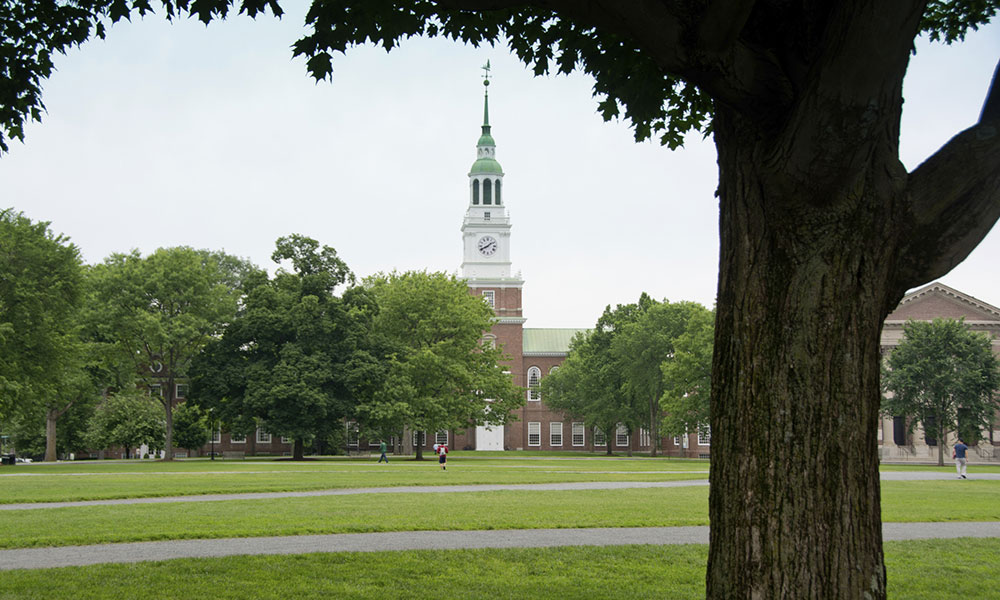
Associations Praise Dartmouth College Hard Liquor, Pledging Bans
Higher education and Greek Life associations expressed support for new, strict policies announced by the president of Dartmouth College.
As the national discussion about the culture of sexual assault on college campuses continues, one prominent Ivy League institution announced sweeping changes aimed at directly addressing the issue.
In a speech last week to students, faculty, staff, and alumni, Dartmouth College President Philip J. Hanlon announced that the school will no longer allow students to possess hard liquor on campus, regardless of age, and that student organizations will be prohibited from employing initiation or pledging programs of any kind.
“We envision a campus where students are free of extreme behaviors, where sexual assault and high-risk drinking are eradicated from our campus,” Hanlon said. “These initiatives will help pave the way to a campus that is safer and free of extreme behaviors. But true and lasting change will not come from top-down policies alone. It will come from individuals—and organizations—committing to live up to a higher standard of behavior.”
Last year, Dartmouth was one of several dozen schools listed on a U.S. Department of Education report on open Title IX sexual violence investigations. That led to a major overhaul of how the school polices itself and a call for more rigorous investigations when a sexual assault is reported. Students found responsible now face mandatory expulsion. At the time, Hanlon charged students and faculty with brainstorming ways the college could address all issues related to its reputation as a wild party school.
Hanlon’s announcement last week earned praise from a number of associations in the higher education space.
“I think you’re going to continue to see smaller efforts to step up enforcement, but not a lot of big statements like this,” Kevin Kruger, president of NASPA—Student Affairs Administrators in Higher Education, said of the liquor ban in an interview with The New York Times.
In a separate interview with the Washington Post, Kruger admitted that enforcement of such policies is difficult because many students drink off campus. But schools are getting frustrated with the ineffectiveness of awareness and education campaigns, he said, and “there’s some sense of frustration with the intractability of this issue.”
Mark Koepsell, executive director and CEO of the Association of Fraternity and Sorority Advisors, applauded Dartmouth’s no-pledging initiative, calling it an “interesting concept.”
“When it’s done effectively, I absolutely believe it can be one of the most powerful positive influences on, not only students, but [it’s] something they carry with them as alumni for the rest of their lives,” Koepsell told the Post. “Sadly, when not done appropriately, it can also be one of the most harmful.”
On top of the policy changes, Dartmouth will be one of 28 colleges and universities to participate in the Association of American Universities’ sexual assault climate survey this spring. It is the only non-AAU member to opt into the survey.
“Colleges and universities across the country face the issues I’ve detailed,” Hanlon said in his speech. “We are not alone in facing them. But we will take the lead in saying ‘no more.’ We will take the lead in American higher education in restoring student life to a safe and sustainable place.”
(iStock Editorial/Thinkstock)






Comments